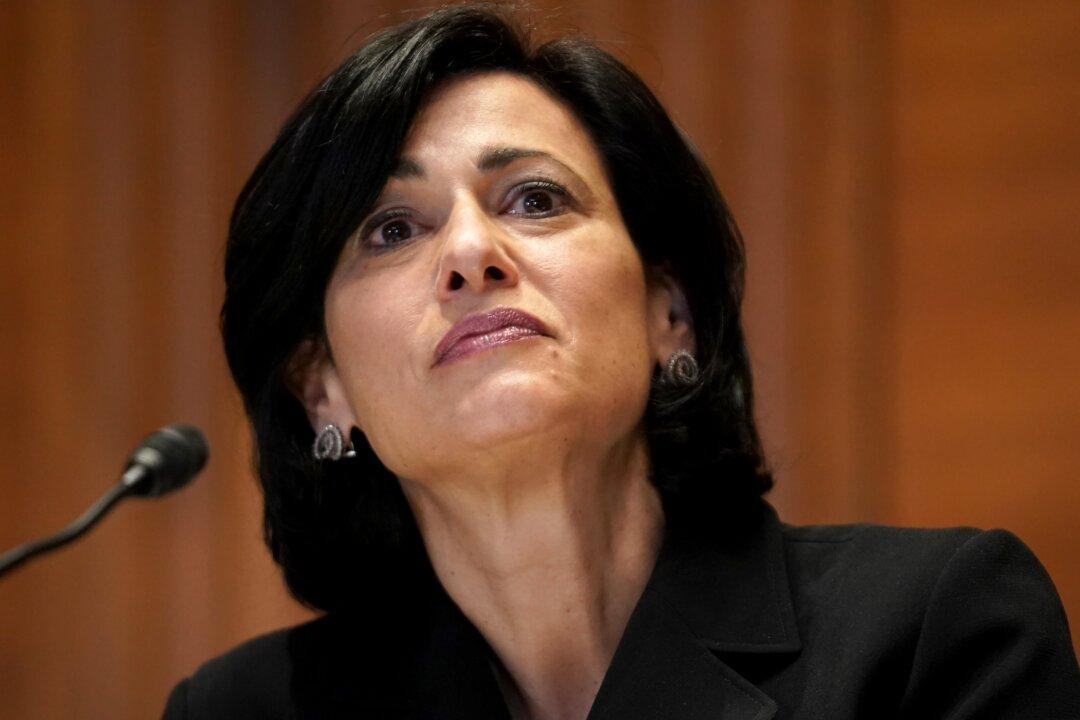The head of the Centers for Disease Control and Prevention (CDC) on Sept. 24 defended unilaterally overruling a panel of experts on which populations should be allowed to receive COVID-19 vaccine booster shots.
Dr. Rochelle Walensky, a Biden appointee who currently directs the CDC, accepted three recommendations on boosters from the agency’s advisory panel. But she rejected a recommendation not to allow boosters for 18- to 64-year-olds who are at a higher risk of being exposed to COVID-19 because of their job or living situation, even though some panel members said that could be interpreted to mean virtually anybody.





